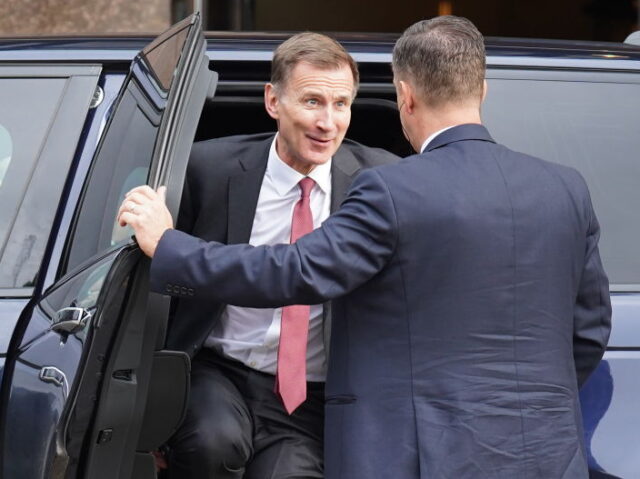The government won’t let British workers keep more of their own money because allowing people the opportunity to spend it how they see fit would drive inflation up, the British government is to tell the country today as the governing party meets for its annual conference.
The levels of money the government takes from families and businesses is at an all-time high and has seen the most rapid ever increase in a single peace-time Parliament, yet there is no end to this pain in sight, the Chancellor of the Exchequer (Finance Minister) will say at his conference speech today.
Elements of this speech were previewed by Chancellor Jeremy Hunt as he toured the broadcast studios ahead of his address, and he said he wouldn’t be promising a tax cut, didn’t know when he’d be able to promise one, and that doing so would be detrimental to his goal of getting inflation down. Speaking to The Times on their Times Radio, the Chancellor said: “…if we want faster growth and an end to taxes ever ratcheting higher, it is possible to do that, but there are no shortcuts. At the moment if we had big tax cuts, they would be inflationary because we would be putting extra money into people’s pockets, they would spend it, and that would push up prices.”
The Chancellor’s remarks betray his own perspective of biases, including that letting people keep more of their own money is actually giving them more money, a view associated with those who support a large state, and the economic belief that individuals spending money causes inflation, but the government taking and spending exactly the same money itself doesn’t.
Attempting to make a differentiation between his Conservative Party and the opposition Labour Party, who they will face off against at the general election next year and who also don’t want to cut taxes, Hunt intoned that: “We would all love to see taxes cut and as a Conservative facing an election I believe in lowering taxes”. Despite the words, he again said he didn’t think he would actually cut taxes.
Breitbart London reported last week on a new paper by the Institute of Fiscal Studies which warned the present high-tax system risked becoming a permanent state of affairs and that the considerable rises were a consequence of government choices, not circumstances out of their control, as Hunt claims. Responding to this, Hunt said: “I don’t agree with people like the Institute for Fiscal Studies who say that this shift to a more highly taxed economy is likely to be permanent. It doesn’t have to be permanent. You have to take the difficult decisions and with Rishi Sunak you have a Prime Minister who is willing to take those difficult decisions.”
As for how it would actually be possible to make tax cuts — one day — Hunt told the BBC Today Programme on Monday morning of those ‘difficult decisions’: “there are no shortcuts, we’ve got to make difficult decisions to make it easier for companies to grow. We’ve got to be much more efficient in how we spend taxpayers’ money, but the encouraging thing is we’re starting to get there, we know we recovered faster than France or Germany from the pandemic…”.
As reported, the tax burden is presently on course to rise to 37 per cent of GDP by the end of this parliament, up from 33 per cent at the time of the last election. This is the highest level since the Second World War and this Parliament is due to be the highest period of rises since records began.

COMMENTS
Please let us know if you're having issues with commenting.